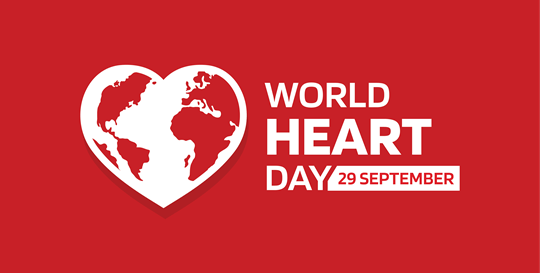As the world recognizes World Heart Day on September 29, we at Beckman Coulter are focusing on cardiac health and celebrating how awareness and access to accurate diagnostic care saved the lives of two of our team members.
Cardiovascular diseases are the leading cause of death worldwide and part of a group of non-communicable diseases (NCDs) that “kills 41 million people (about twice the population of New York) each year, equivalent to 71% of all deaths globally.”1
Commonly referred to as chronic diseases, NCDs’ fatal impacts may be less severe if detected and treated early.1
Diana Careaga, a Beckman Coulter Diagnostics scientist in clinical affairs based in Miami, Florida, leads an active lifestyle and has a family history void of heart disease risk. So, when a tightness in her chest escalated to feeling like “an elephant was on her chest,” she didn’t panic.
“I thought maybe I overdid the previous day’s workout. I had been sleeping on my left side when the pain woke me up. When my left arm was numb, I thought it was my sleeping position and turned over to my right.”
It wasn’t until the pain quickly worsened and the numbness didn’t let up that she woke her husband to say, “I’m having a heart attack.”
When her electrocardiogram came back clear, emergency room personnel still wondered if maybe her symptoms were due to anxiety. Her seemingly good health and initial screenings hadn’t raised any concerns for them. They would need results from her blood tests, such as one for troponin, a protein that is present in circulation during myocardial infarction (MI), to help identify the cause of her symptoms.
Diana knew her symptoms were not from anxiety. While not having any apparent risk factors, she knew her body’s symptoms were from what the troponin test confirmed: she had a heart attack.
In an eerily similar scenario, access to diagnostic care alerted physicians that something was off for Gina Saenz, Diagnostics director of microbiology manufacturing in Sacramento, California. Gina had just finished her morning swim workout and was heading to work, but felt like she had indigestion, which wasn’t normal for her.
“I was at a stop sign, and I just thought, ‘something isn’t right.’ I called my husband and at his urging, drove to the nearest hospital.”
None of the initial screening or electrocardiogram results signified any reason for alarm. But an elevation of troponin in Gina’s bloodstream indicated something was going on with her heart. Cardiac catheterization later confirmed a diagnosis, which was a tremendous wake-up call for her. “I’m really fortunate,” Gina shared. “I have full heart function, and no heart damage occurred thanks to the quick diagnosis and treatment. The consequences could have been a lot worse.”
Diana and Gina still lead active lifestyles and follow recommendations for heart health, just like they did before their cardiac events. While monitoring the effects of slight lifestyle changes, they are passionate about educating others about controllable risk factors and the importance of access to quick, diagnostic care.
Read the first blog in this series, At the Heart of International Women's Day, to learn more about how sex-specific differences in cardiac biomarkers create inequities in diagnostic care, regardless of access.
Beckman Coulter offers a comprehensive cardiac testing menu.

 English
English





